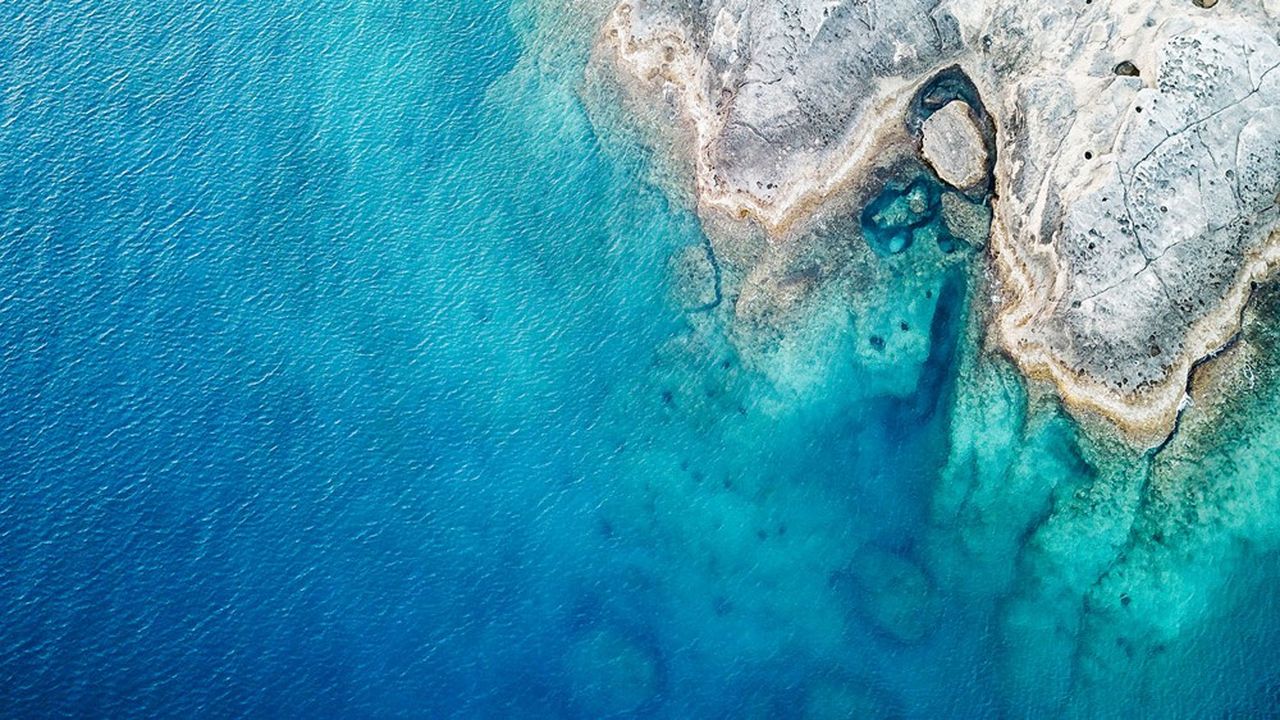
Is the Mediterranean Sea becoming a tropical sea? The 30°C exceeded in mid-August off the coast of Greece, Sicily, or even Corsica, have in any case dismayed experts. “Just yesterday, the surface temperature in the Villefranche harbor was very, very much above the previous records for the same date,” says Jean-Pierre Gattuso, research director at the Oceanography Laboratory of Villefranche-sur-Mer (Alpes-Maritime). “It reached 28.9°C on the surface on August 12, it’s absolutely astonishing!”
For scientists, however, this is not a surprise. “This “tropicalization” of the Mediterranean, just like the warming of the oceans, are very well described and predicted in the IPCC scenarios,” recalls the researcher. “Global warming causes an increase in the temperature at the surface of the seas and oceans, which absorb 90% of the heat linked to greenhouse gas emissions. It also increases the frequency, intensity and extent of marine heat waves.” In fact, year after year, records follow one another.
Species mortality
“It’s a disaster in many ways,” says Sabine Roux de Bézieux, president of the Fondation de la mer. First, because this warming has a direct impact on marine ecosystems. These marine heatwaves, which have the effect of underwater fires, have a direct impact on the mortality of certain species. “After each episode, we see a mass mortality of gorgonians, sponges, corals, but also oysters and mussels,” says Jean-Pierre Gattuso.
Regularly subject to restrictions on their mussels and clams, the producers of the Thau lagoon in Hérault know something about it. “Either the rise in temperatures deprives these shellfish of the necessary oxygen, and they die, or it causes an explosion of toxic phytoplankton, which makes them unfit for consumption,” continues the researcher.
By changing the size of phytoplankton, the base of the underwater food chain, global warming may also ultimately impact the sea’s fisheries resources – and fishermen’s income. It also causes a shift in species, as evidenced by the schools of barracudas once visible in the southern Mediterranean, now present off the coast of the Côte d’Azur.
“We are also seeing more and more of them migrating from the Red Sea via the Suez Canal,” recalls Sabine Roux de Bézieux. Researchers have listed 1,200 of these invasive species, such as lionfish and rabbitfish, which previously lived exclusively in tropical seas. Not without damage: as a herbivore, rabbitfish devour, for example, algae and seagrass beds that are essential for biodiversity. Conversely, the invasion of species such as octopuses on the Atlantic coast since 2021 (which greatly worries local fishermen) could be linked to the disruption of ecosystems in the Mediterranean.
Modest climate action
The warming of the Mediterranean finally leads to a change in the weather. Evaporation increases, causing episodes of torrential rain when the air laden with humidity meets colder reliefs: the famous Cévennes episodes, or disasters like those in the Vésubie valley in 2020, in the hinterland of Nice, are expected to multiply.
“The entire ecological and economic balance of the Mediterranean is under threat,” insists Sabine Roux de Bézieux. “Tourism, leisure, fishing, and even seaside housing risk being completely disrupted…!” Jean-Pierre Gattuso is sounding the alarm again. “We urgently need to reduce greenhouse gas emissions to limit global warming,” he says. “It’s so frustrating to describe these disasters, one after the other, and to see that climate action remains so modest!”





